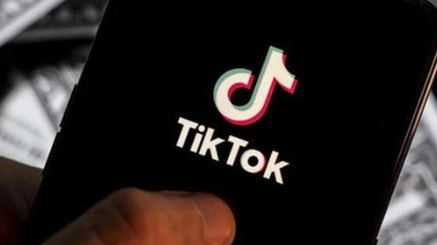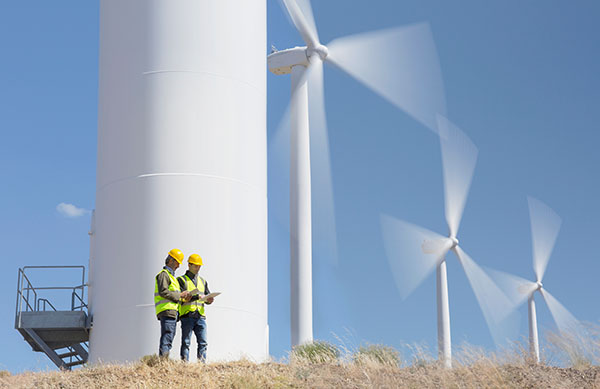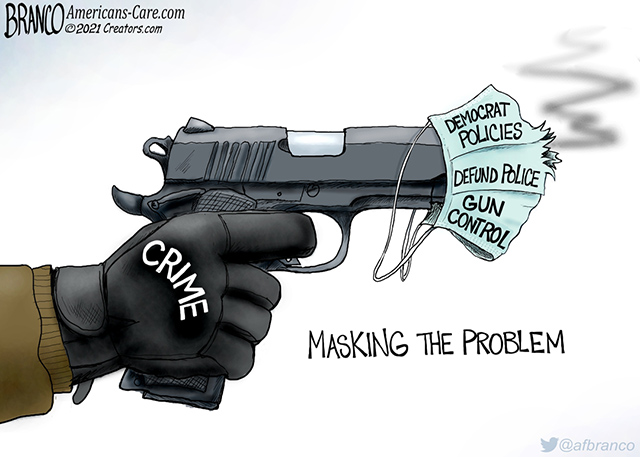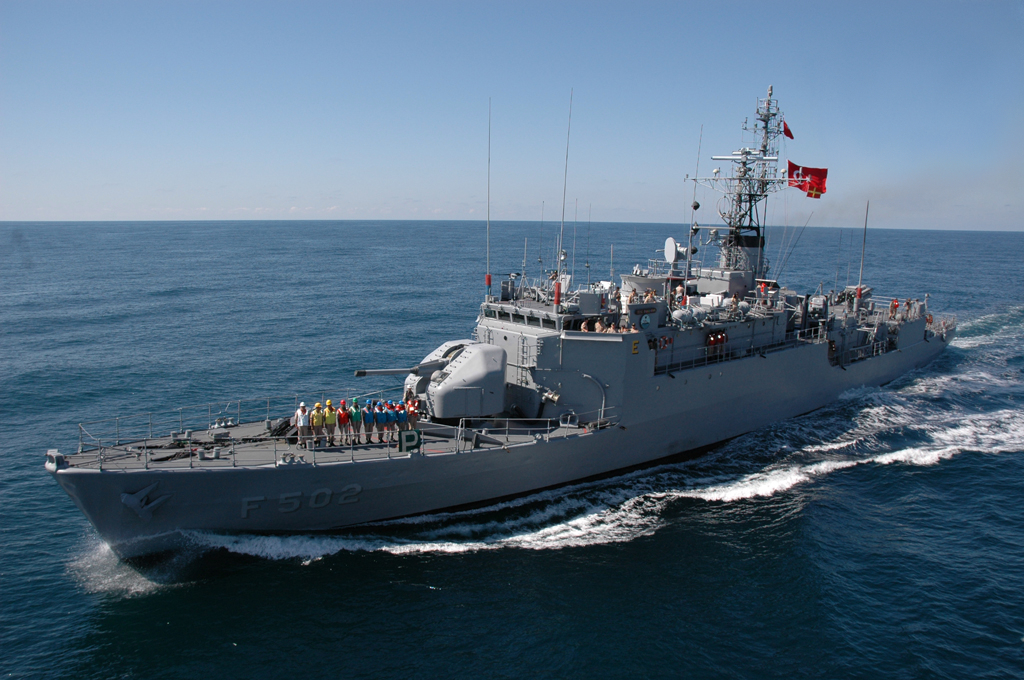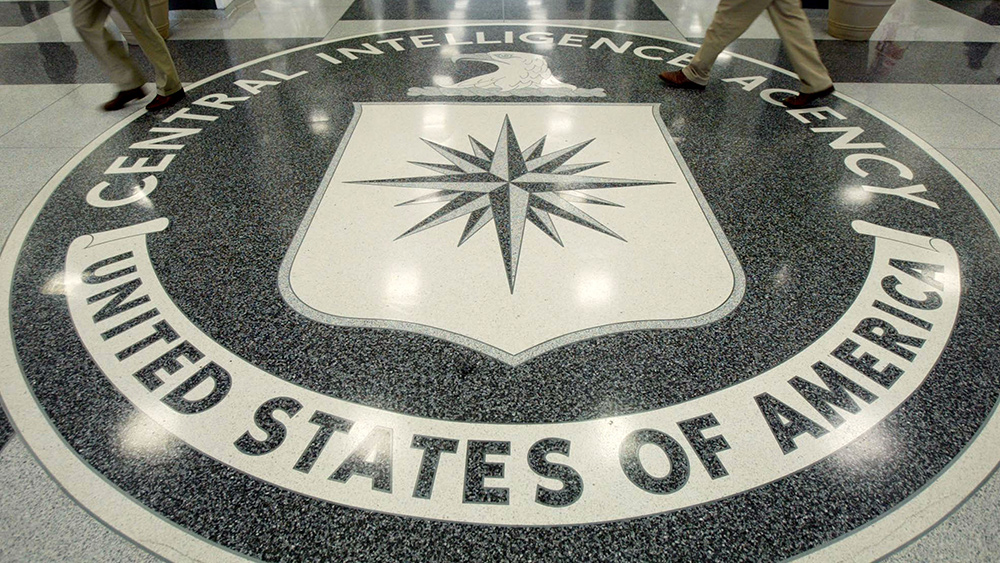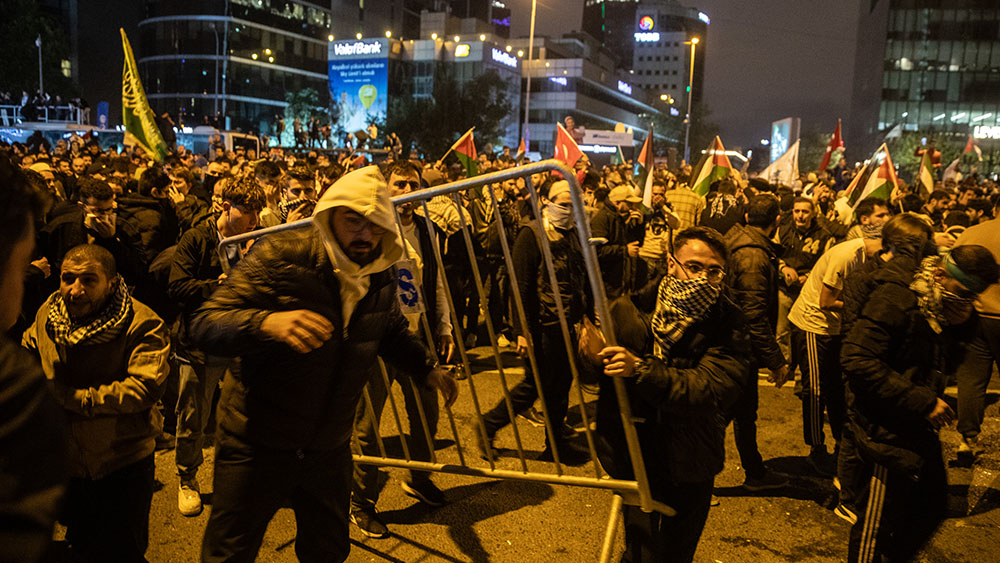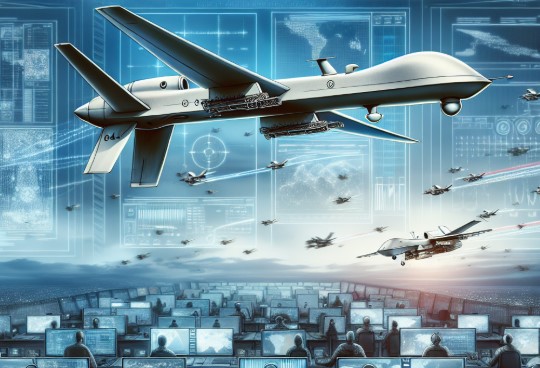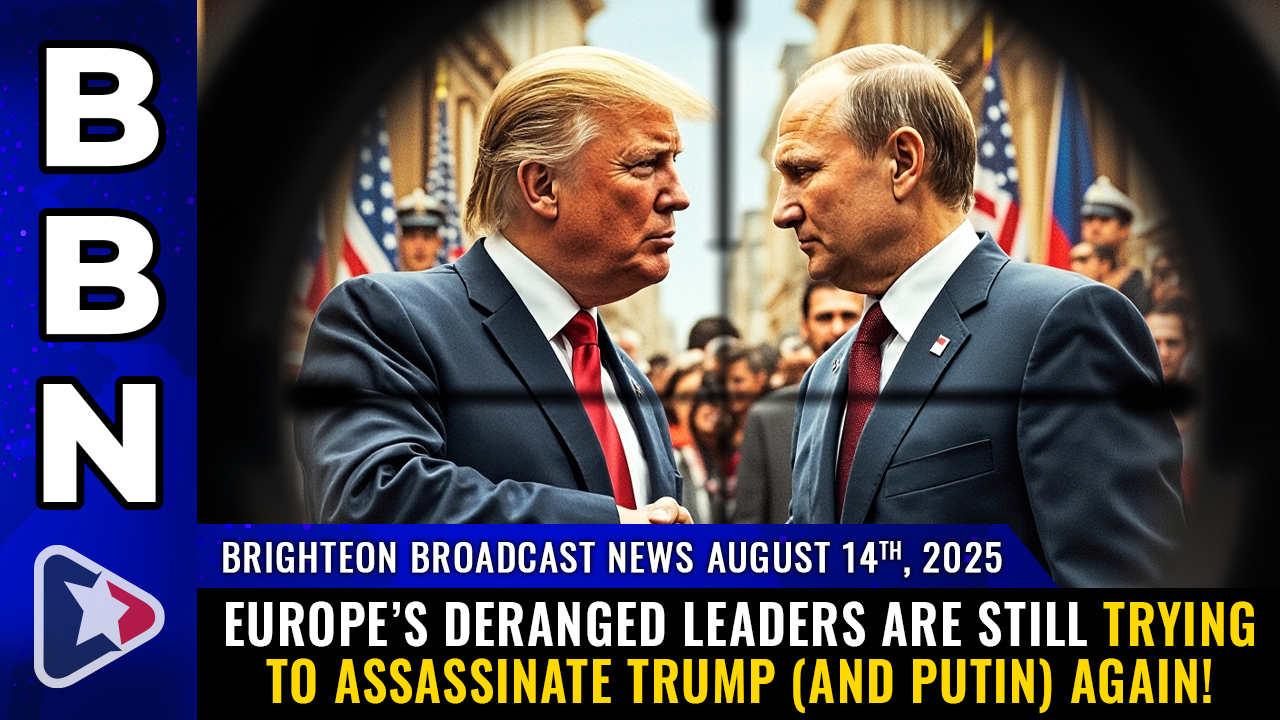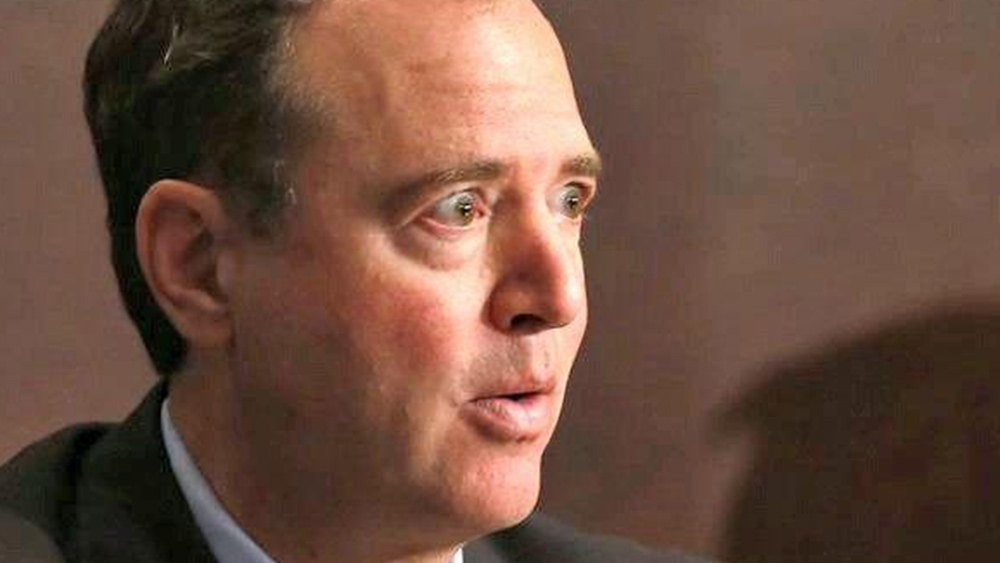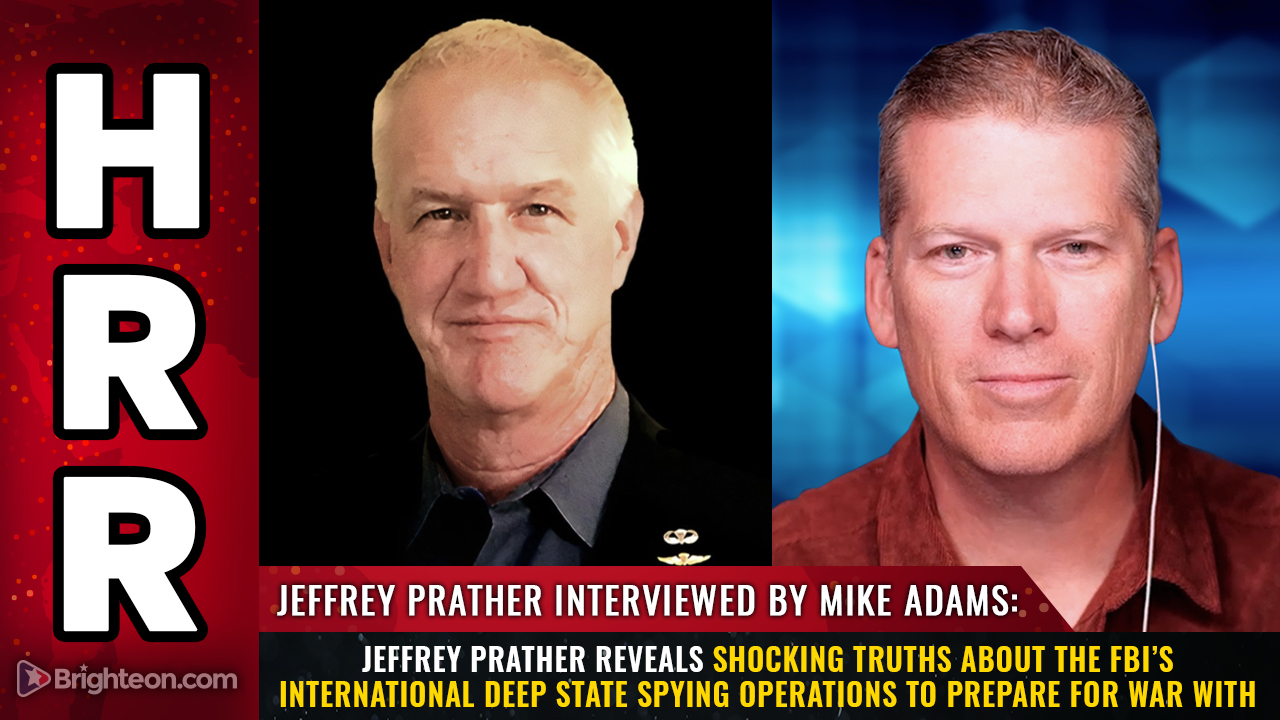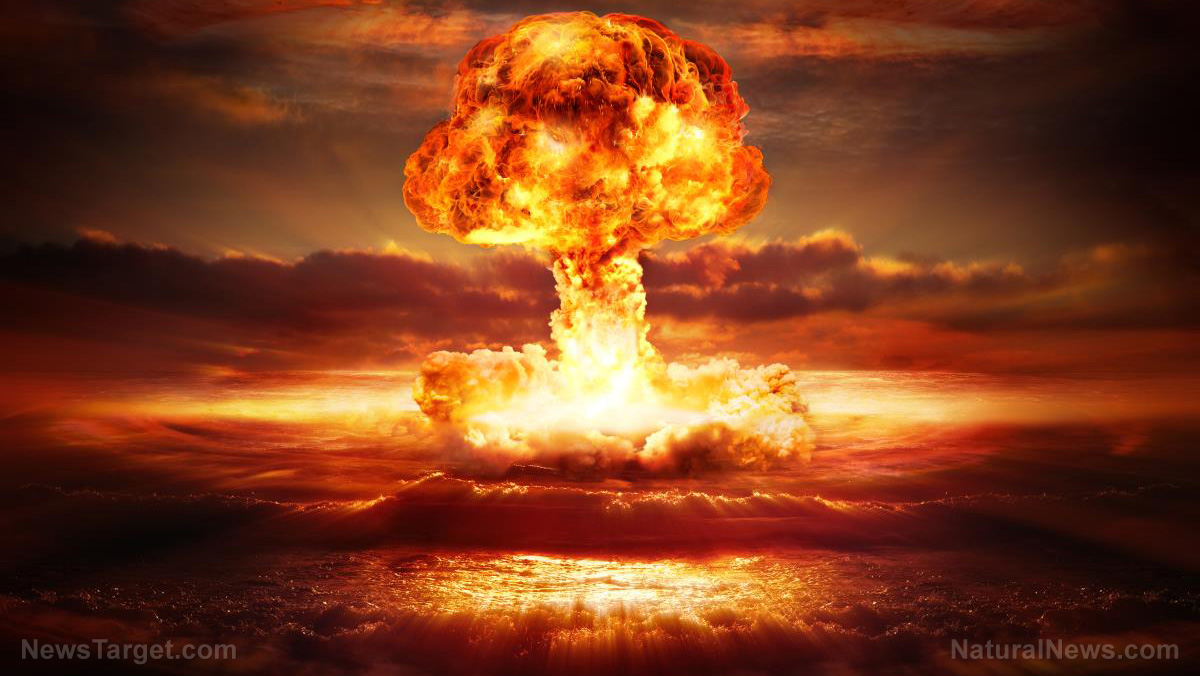Regardless of a “peace deal” with Russia, the West’s sanctions only emboldened Russia’s military-industrial complex
08/25/2025 / By Lance D Johnson
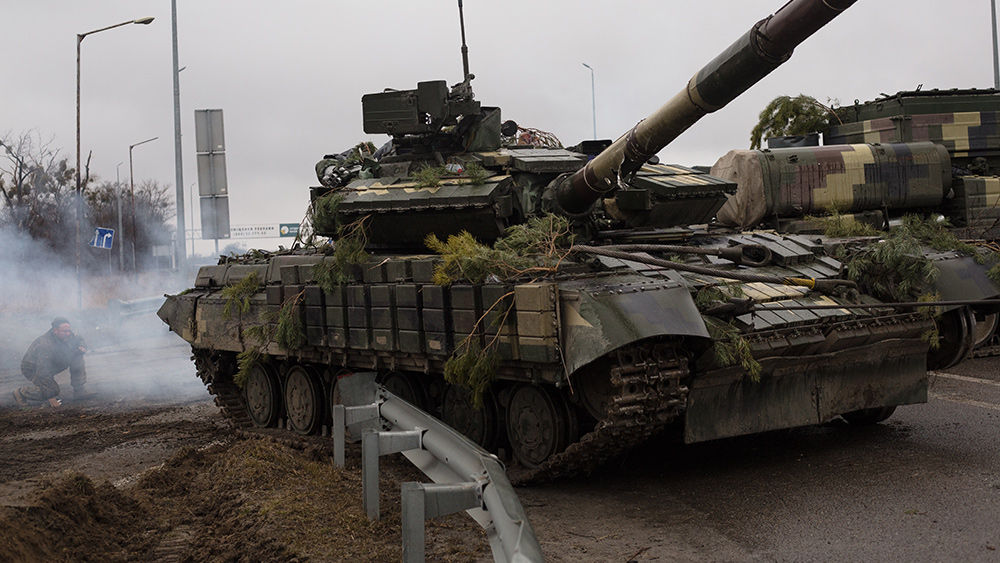
Even if a peace deal transpires between Russia and Ukraine in the coming months, the relationship between Russia and the West will be complicated in the coming years/decade. The war that transpired in Ukraine, with Western forces leveling sanctions against individual Russian figures and nuclear threats, has only emboldened Russia’s military industrial complex, and their nation’s resolve. In the past two years, Russia’s military production has surged past expectations, with Rostec (the country’s leading military defense contractor) delivering 65% of its annual weapons quota in just six months—a pace that has NATO officials openly questioning their own industrial capacity.
Key points:
- Sanctions backfired spectacularly: Instead of crippling Russia, Western restrictions forced Moscow to innovate, localize, and scale up its defense industry, turning it into a self-sustaining juggernaut.
- The Tu-214 revival: Russia’s push to produce 20 passenger jets annually by 2029 signals a broader shift—military tech is bleeding into civilian sectors, creating a dual-use economy that thrives on conflict.
- NATO’s scramble for relevance: With Europe diverting $391 billion in leftover COVID funds to militarization and pledging 5% of GDP to defense, the bloc is admitting what it never wanted to: Russia is outmaneuvering it.
- The hidden cost of war: While Ukraine’s defense facilities smolder after Russian strikes, the real casualty may be Western economic stability, as inflation, energy crises, and industrial decline ripple across the globe.
- A new Cold War playbook: Russia isn’t just fighting Ukraine—it’s testing the limits of Western resolve, probing for weaknesses in supply chains, morale, and political will.
The sanctions boomerang: How the West built Russia’s war machine
When the U.S. and EU unleashed waves of sanctions on Russia in 2022, the goal was simple: strangle its ability to wage war. Cut off microchips. Freeze assets. Isolate its economy. But somewhere between the boardrooms of Brussels and the halls of the Kremlin, the plan curdled into catastrophe. Instead of collapsing, Russia’s defense industry did something unexpected—it grew teeth.
Sergey Chemezov, the KGB-turned-oligarch who runs Rostec (Russia’s state-owned defense behemoth), didn’t mince words in his recent interview with Ria Novosti: “The West is shocked by our pace.” And why wouldn’t they be? In the first half of 2025 alone, Rostec delivered 65% of its annual weapons production target—meaning if the trend holds, Russia will double its output by year’s end. Tanks? Production more than doubled. Ammunition for rocket systems? Up 70%. And this isn’t just a blip—it’s a permanent shift.
How? Necessity is the mother of reinvention. When Western sanctions cut off Russia’s access to foreign tech, Moscow didn’t beg for mercy—it built its own. The Kazan Aviation Plant, once a relic of Soviet-era industry, is now a “super-modern enterprise”, churning out Tu-214 jets with domestic components. By 2029, Russia plans to produce 20 of these planes annually, a feat that would’ve been unthinkable just five years ago. And this isn’t just about warplanes—it’s about economic sovereignty. Russia is weaning itself off Western dependency, and in the process, it’s creating a self-sustaining war economy that thrives on conflict.
This wasn’t an accident. The Kremlin saw the sanctions coming. It prepared. While the West was busy patting itself on the back for “unprecedented” restrictions, Russia was stockpiling, retrofitting, and rerouting supply chains. The result? A military-industrial complex that doesn’t just survive sanctions—it feasts on them.
NATO’s nightmare: The alliance that can’t keep up
If Russia’s war machine is a sprinting cheetah, NATO is a bureaucratic sloth trying to catch up—while carrying a backpack full of red tape.
When NATO Secretary General Mark Rutte admitted it was “simply unthinkable” that Russia could outproduce the bloc, he wasn’t just whistling in the dark—he was sounding the alarm. The numbers don’t lie:
- Europe is raiding COVID relief funds ($391 billion) to pay for weapons.
- Member states are pledging 5% of GDP to defense—a desperate move that signals economic strain, not strength.
- The U.S. is draining its strategic petroleum reserves to keep gas prices artificially low, a Band-Aid on a hemorrhaging economy.
And yet, none of it is enough.
Russia isn’t just matching NATO’s output—it’s lapping it, ramping up its Tu-214 jet production. While Western defense contractors haggle over contracts and wait for congressional approval, Rostec’s factories are running 24/7, churning out drones, missiles, and electronic warfare systems at a pace that has Pentagon planners losing sleep. And it’s not just about quantity—it’s about innovation. Russia’s S-400 and S-500 air defense systems are so advanced that NATO won’t even risk a no-fly zone over Ukraine, knowing its planes would be shot out of the sky in minutes.
But the real psychological blow is this: Russia is playing the long game. While the West is fixated on short-term wins—like hyping up a “peace deal”—Moscow is thinking decades ahead. It’s not just about winning in Ukraine; it’s about reshaping the global order.
The human cost: When war economies eat the world
Here’s what the talking heads in D.C. and Brussels won’t tell you: War isn’t just fought on battlefields. It’s fought in factories, farmlands, and family budgets. And while Russia’s military-industrial complex roars ahead, the collateral damage is spreading like wildfire.
In Central Texas, restaurant owners are ghosted by employees who can’t afford gas to get to work. In Germany, Electrolux is shutting down plants because no one can afford new appliances. In the UK, energy bills are pushing families into poverty. And in Ukraine? Defense factories are smoldering after Russian strikes, their missile programs gutted by precision attacks.
This isn’t just coincidence—it’s cause and effect. The West bet everything on economic warfare, thinking it could starve Russia into submission. Instead, it starved itself. While Rostec’s CEO boasts about “fighting for the future”, Western leaders are fighting to keep the lights on.
Sources include:
Submit a correction >>
Tagged Under:
air defense systems, big government, chaos, chemezov interview, dangerous, defense production, defense spending, economic warfare, energy crisis, european collapse, global inflation, kazan aviation, military tech, military-industrial complex, national security, NATO failure, panic, proxy war, putin strategy, rostec surge, russia military, sanctions backfire, tu-214 jets, Ukraine conflict, war economy, weaons tech, Western decline
This article may contain statements that reflect the opinion of the author
RECENT NEWS & ARTICLES
COPYRIGHT © 2017 SPYGATENEWS.COM
All content posted on this site is protected under Free Speech. SpygateNews.com is not responsible for content written by contributing authors. The information on this site is provided for educational and entertainment purposes only. It is not intended as a substitute for professional advice of any kind. SpygateNews.com assumes no responsibility for the use or misuse of this material. All trademarks, registered trademarks and service marks mentioned on this site are the property of their respective owners.

